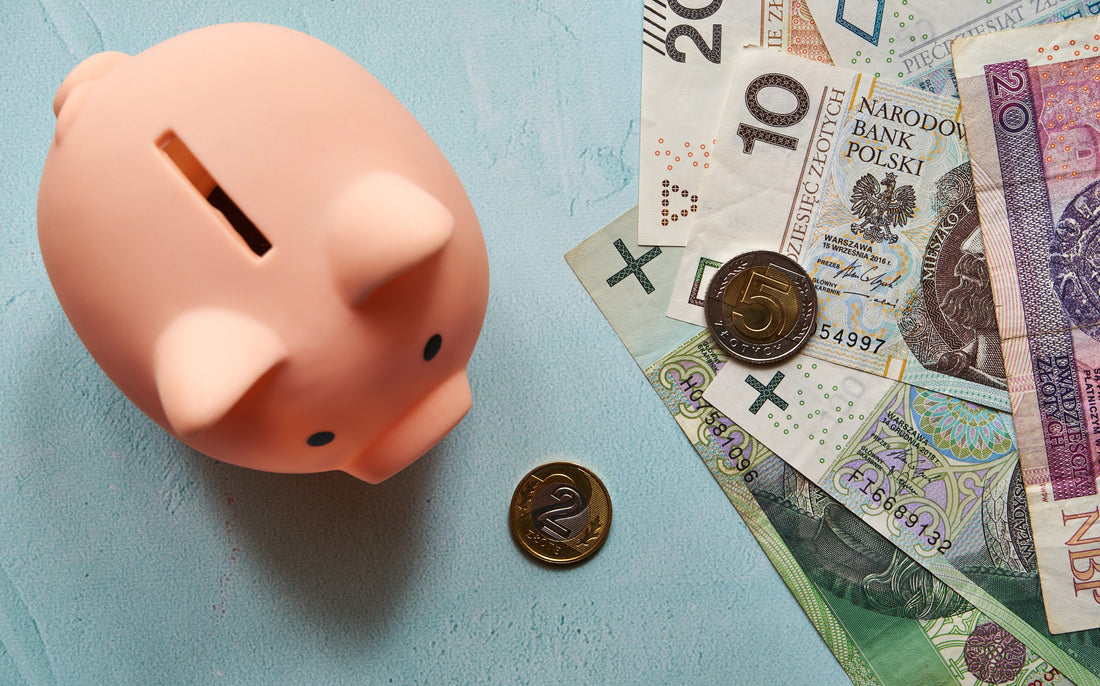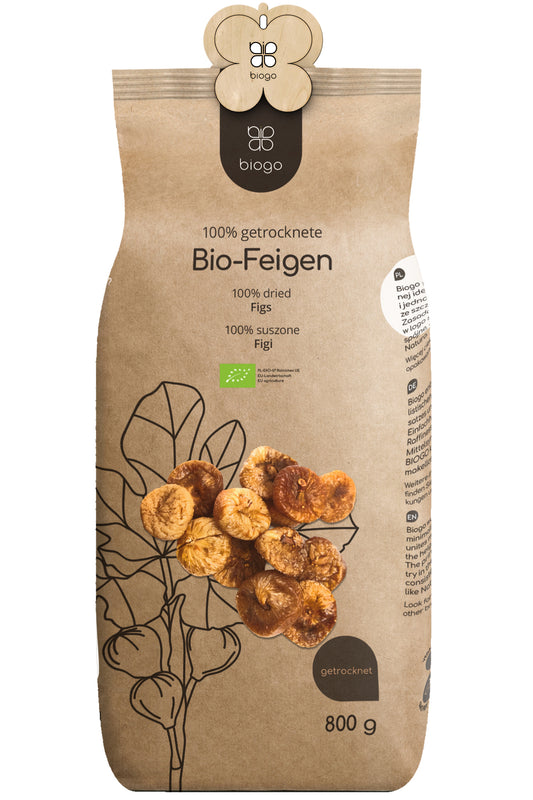- Create a shopping list and plan your meals carefully throughout the day
- Closely monitor the prices of food in the same category
- Eat seasonal vegetables and fruits
- Online grocery shopping
- Limit the purchase of products labeled as organic or organic
- Limit food and stimulants
- Avoid unhealthy snacks and sugary drinks
- Zero Waste – Let’s reuse leftover food
- Summary
In times of economic crisis, the obvious and sensible solution seems to be to cut unnecessary spending and accumulate cash. We are currently faced with this situation. This is not only seen in cinemas, bars, luxury stores, or travel agencies. Almost all of us are trying to reduce the cost of living by not only limiting pleasures but also by buying different foods than before. They are an extremely important part of any household budget and essential for our survival. Therefore, buying the lowest-quality food is not always the best solution. In this article, we present several ways to save a certain amount of money on daily shopping or when choosing food. We wish you pleasant and fruitful reading.
Create a shopping list and plan your meals carefully throughout the day
Keeping a shopping list or skipping on it while hungry is certainly one of the more common ways to save money. But even when planning, it's worth asking yourself what you really need to prepare a meal. Creating such a list allows you to get the shopping done much faster, but it also guarantees you a lot of money savings. When you constantly have to check what you're putting in your shopping cart, you're unsure if you've brought all the necessary items. This is when we most often grab things we don't really need and buy them on impulse. Then, upon returning home, it turns out you already have that item or have no idea what dish it will be useful for. Eventually, it ends up in the trash because you didn't use it before its expiration date. This behavior leads to enormous losses, even on a monthly or even weekly basis. Therefore, it's best to plan your meals at least a few days in advance. This will make it much easier for us to create a shopping list and will make us more resilient to unplanned expenses. It's also extremely important to check the expiration date of individual food items, both while shopping and in the refrigerator. This way, we can assess in the store whether we can use the product before its expiration date. On the other hand, by checking the food we have in our household, we can reduce food waste and protect ourselves from additional expenses.
Closely monitor the prices of food in the same category
A brand costs money and doesn't always translate into an increase in the quality of the product in question. Studies have shown that when we choose the most expensive product, we have a 70% chance of choosing the best. This means we don't have to resort to expensive products to ensure we're eating healthily. Therefore, it's worth reading the ingredients of the food you buy and comparing it with other products in the same category. There's a good chance we'll find a much cheaper substitute that doesn't have the same quality as its more expensive counterpart, or even surpasses it in this respect. It's also worth paying attention to the price per kilogram of food, as the unit price can be confusing. This, of course, arises from the different grammage of each product, and it's not always cheaper to pay less in the end. An interesting aspect that can be found in many stores is popular advertising brochures. They don't always offer extremely good deals, but they're worth following, especially if you already have a shopping list. This can certainly help you save some money, especially if you're buying a large quantity of products, even for the entire week. Of course, this can be difficult for most of us at first. Over time, however, we'll find it easier to select individual items, and the most tangible culmination of this will, of course, be a larger amount of cash at the end of the month.
Eat seasonal vegetables and fruits
The price differences between in-season and out-of-season vegetables and fruits are truly enormous. In fact, we can buy almost all of these products even in winter, but we'll certainly feel the impact on our household budget. Admittedly, it won't be easy to break our habit and eat only seasonal produce, but we'll save a lot of money doing so. In addition, seasonally purchased vegetables and fruits are characterized by a significantly higher content of vitamins and minerals. This not only saves us money but also makes for a much healthier diet. A good example is tomatoes, whose price fluctuates significantly throughout the year. Let's add that these differences amount to several hundred percent and depend on whether we buy them in season or out of season.
Online grocery shopping
It's no secret that online shopping usually costs us much less than traditional shopping. Typically, the starting prices of individual products are significantly lower at the very beginning. This is due to the lower costs that such stores have to bear compared to their brick-and-mortar counterparts. Furthermore, the quality of the products offered is not compromised, so we can be sure that we are buying healthy and wholesome goods. It is true that we still have to pay a shipping or delivery fee, but if you buy more, it is usually completely free. Moreover, by choosing this method and not any other, we ourselves avoid annoying queues and are sure that the product we choose is actually in stock. Very often, we can also choose the delivery date in advance, which fits perfectly with our previously created shopping list.
Limit the purchase of products labeled as organic or organic
In terms of health and nutritional content, there's no significant difference between a standard product and an organic one. Moreover, the latter can be several times more expensive without offering significantly higher quality. Yes, ethical considerations can be a very common reason for buying such eggs—as in the case of eggs labeled organic. Then we can be sure that the hens that produced them were in truly good condition and fed all-natural feed. However, if we consider only the material aspect and the impact on our health, products without such labeling are significantly better financially.
Limit food and stimulants
In popular psychology, there's a term known as the "latte effect." It refers to small, everyday expenses that we don't notice much, but which result in huge financial losses on a monthly or annual basis. Buying a coffee in town every day is just one example. Spending 10 PLN a day on a latte amounts to almost 300 PLN a month and about 3,600 PLN a year. That's a lot of money, and such a one-time expense could cause us financial headaches. However, that's just the tip of the iceberg. Each of us has our own "latte effect." For some, it's the aforementioned coffee in town; for others, it's a pack of cigarettes, a daily lunch at a restaurant, or a monthly subscription to a platform with films and series that we hardly ever use. While each of these habits or addictions has different effects on our health and lives, their common denominator is the loss of a large amount of cash. So it's worth doing some soul-searching and considering where our money is going. It will certainly be a good motivation to at least quit smoking.
Avoid unhealthy snacks and sugary drinks
Consuming salty snacks, sweets, and sugary carbonated drinks not only ruins our health but also our budget. It's worth remembering that these products are relatively expensive, and for their price, we could easily and without much trouble prepare a full meal. We'll use potato chips as an example here. After all, we pay a lot of money for a small amount of fried potato slices, enriched with a huge amount of salt and other flavor enhancers. For almost the same amount, we can simply buy potatoes and bake them in the oven, accompanied by seasonings. This way, we save both money and our health. The same applies to all kinds of sweets, including sugary carbonated drinks, whose prices have risen dramatically since the introduction of the sugar tax. For a much lower price, we can even buy the fruit we like and squeeze the juice from it ourselves. Much cheaper and much healthier, and yet, for many, health is the most important thing.
Zero Waste – Let’s reuse leftover food
The zero-waste philosophy not only benefits the environment but also our wallets. Every year, huge amounts of food are thrown away in Poland and around the world. Interestingly, inedible products are only a part of the whole. When we have individual products or parts of them, it's worth using them to prepare other dishes. Another interesting solution is to create a delicious dish from leftovers from other meals. For example, potatoes left over from dinner can be used as a base for making dumplings, and old dried bread rolls can be given a second life as breadcrumbs. We can make delicious spreads from leftover meat or fish, and we can prepare interesting and innovative salads from vegetables. There are countless ideas for using seemingly unnecessary products in this way, and we are really only limited by our imagination. Who knows, maybe we will discover in ourselves a talent like an experienced chef who can create something delicious from nothing.
Summary
Eating healthy while saving our hard-earned money can actually be worthwhile. There are countless ways to do this, and there's room to save in practically every area of life. But it's not just about becoming a "swimmer" of sorts; it's about managing your capital wisely and consciously—both health-wise and financially.
THE PUBLISHER'S CHOICE
Dried dates 1 kg BIOGO
- €4,21
€4,95- €4,21
- Unit price
- / per
Almonds 1 kg BIOGO
- €11,69
€13,75- €11,69
- Unit price
- / per
Peeled sunflower seeds 1 kg BIOGO
- €3,04
€3,57- €3,04
- Unit price
- / per
Dried organic mango 400 g BIOGO
- €10,99
- €10,99
- Unit price
- / per
Dried White Mulberries 500 g ORGANIC
- €5,84
€6,87- €5,84
- Unit price
- / per
Popcorn (corn kernels) organic 1 kg BIOGO
- €5,84
- €5,84
- Unit price
- / per
Organic Ground Turmeric 500 g BIOGO
- €5,92
- €5,92
- Unit price
- / per
Milk thistle seeds 1 kg BIOGO
- €3,99
- €3,99
- Unit price
- / per
Dried organic figs 800 g BIOGO
- €30,12
- €30,12
- Unit price
- / per
Bag #changezbiogo Cotton v.2
- €3,27
- €3,27
- Unit price
- / per






































































































































